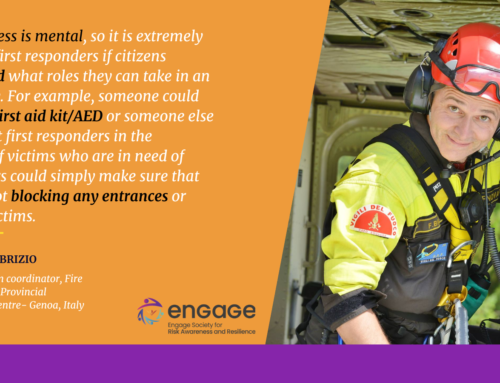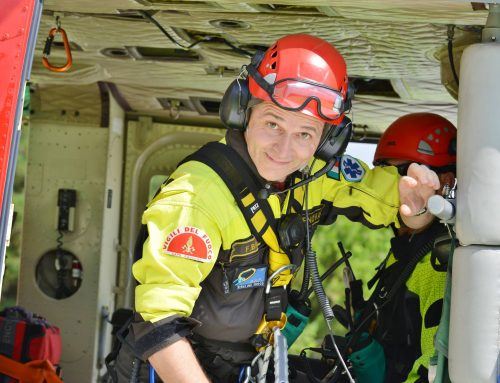The nature of emergencies and how we deal with them is constantly evolving. Early societies would generally use a cooperative and informal approach (neighbour to neighbour) to dealing with danger when required. Since then, the general trend has seen a drive towards increasingly supplementing this community capability with formal and coordinated professional bodies.
And we are now at the point where these organisations are effectively the sole proxy custodians of emergency response acting under municipal or government direction. And in doing so, the citizen role has often been reduced to one of passive compliance in which they will be urged to “leave it to the professionals”.
The professional responder approach has proven very durable and, for good reason. But, in a rapidly changing world, there are also signs that it is becoming dangerously remote from the communities it grew out of and is often unresponsive to their contribution and needs. There are many possible reasons for this, but one factor may be that each experiences them differently. It is fair to say that, in most cases, emergency services understand events in technical or procedural terms. And yet, our citizens experience them very differently. As humans. And as humans, emotions, personal circumstances and longer-term harm or vulnerability are often as important as the immediate risk.
Neither the citizen nor professional perspective is more important than the other. But if we are to create the whole society and resilient model we now need to face future risks, we urgently need to find ways to integrate them. In part, this will require greater awareness amongst the professional responders of the citizen experience and role.
Citizens already make an enormous contribution to emergencies, either by dealing with them without assistance or undertaking beneficial actions prior to the arrival of the formal responders. They also have a wealth of knowledge and ideas that can be drawn upon to create solutions. But in too many cases they lack an effective and influential voice with which to shape the services they need. As a result the dominant narrative remains that of the formal emergency services. Whilst invaluable, at best it represents a partial understanding of the experience and harm of emergencies.
The challenge for emergency services is to prepare for a new era. One in which they must show humble leadership and start to reverse the long trend of disempowering communities. We must find ways for emergency services to work, as partners and equals, with citizens, and other stakeholders. All sides need each other but current models disempower and side line citizens rather than recognising them for the invaluable resource that they are. Instead of this two-tier and disconnected model of formal and informal responders, an ‘integrated by design’ approach offers our best hope of creating relevant and effective emergency capabilities. Its time for everyone to get to know each other better.
Author: David Wales, Researcher and customer experience expert, UK




